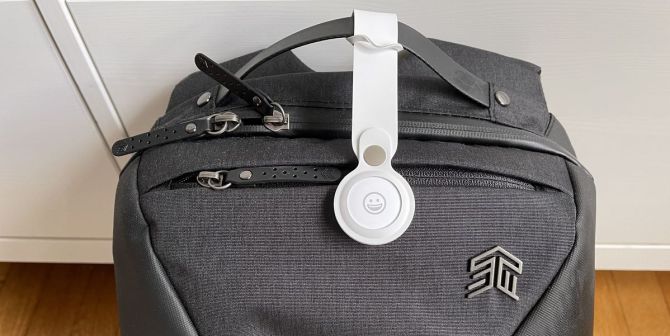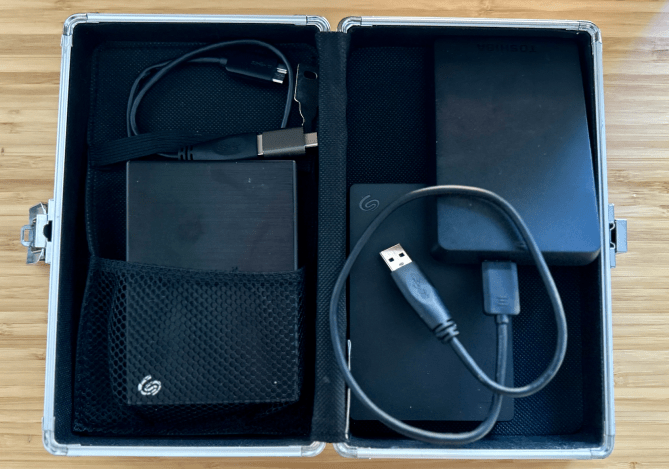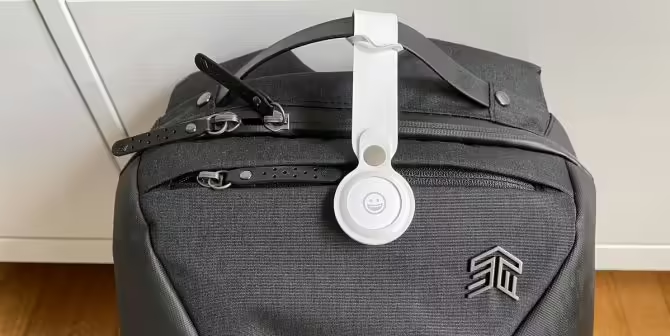8 Tips To Prevent Your DJ Gear From Getting Stolen
When it comes down to it, traveling with your DJ gear for gigs is unavoidable when it’s your bread-and-butter, and pulling in cash for gear rentals is always nice – so protecting your setup from thieves and damage is crucial to keep your line of work running smoothly. Because let’s face it: no one wants to deal with that.
We asked the DJTT online community what their experiences were with their stuff getting swooped, and the lessons they learned that are worth keeping in mind. Sometimes the most basic “why didn’t I think of that?!” ideas make the biggest difference, especially when it comes to making sure your prized possessions are protected on the go.
So read on and take note! Hopefully our community can continue to share advice on how to stop disaster from befalling others in the comments on this article.
1. Put a GPS tracker in your gear bag

One of the most effective ways to track stolen gear is to use GPS trackers. These devices can be placed in DJ backpacks, controller cases, or any other equipment bags. Common options include AirTags and Tile products.
DJTT reader Jason shared that he keeps “an Invoxia GPS tracker in both his DJ backpack and in his DJ controller case.”
He shared his story:
“I knew that having a GPS tracker in my most important bags and cases would be invaluable to retrieving those stolen items, since the police are often unable to help.
After the theft I have bought three more Invoxia GPS trackers. Adding one to my motorcycle and two more to my valuable items.”
2. Be vigilant both during and after gigs
It’s important to be aware of your surroundings during and after events. Some thieves may observe DJs packing up their gear and follow them home.
When describing the same incident in which his gear was stolen – and ultimately, his GPS came in quite handy – Jason explained:
“Unfortunately I think someone saw me packing up my gear after an event and ended up following me home or tracking my car.
At 4:11am, ~40 minutes after I got home and went to sleep, I got a notification of the Tilt detection and later found that my car had been broken into. I had left it at the bottom of my driveway still loaded with equipment. I hadn’t unpacked the gear as I was expecting to wake up early and head to a wedding DJ gig.
I tried to track my equipment down at the place it was located. I thought I had an idea of where my things were, but the cops too too long to respond and I had to catch a ferry to the wedding. I had to borrow gear from a friend to play there and returned home, defeated that I would have to replace the stolen items.
The next day, the GPS tracker moved again into the same neighborhood. I figured it must still be in a car and went to investigate. After staking it out and speaking to nearby neighbors, I found my items through the windows of a black Toyota 4 Runner and called the cops again. They arrived after 45 minutes and informed me that the car was indeed stolen, then opened it and returned almost everything that was stolen. I had a laptop, iPad, limited edition headphones, two wireless microphones, two wired microphones, and cables stolen – roughly $7,000 worth of equipment I was able to get back.”
3. Secure your gear – and don’t ever leave it alone
Never leave your gear unattended or in a vulnerable position. Yes, even if it’s in your car or at your home.
Reader Dean Martin shared his story – a lesson learned all too well:
“I figured: no one can see inside the trunk, so what are the odds my car gets broken into? Well, during my lunch break, someone decided they wanted my stereo but couldn’t manage to get it out – so they decided to cut their loss and see what else they could find. Boom, they hit the jackpot… My DJ gear (2xPioneer PLX2000s and a Traktor Kontrol Z2 in flight cases) was stolen out of the trunk of my car.”
4. Verify every client’s identity
As simple as it may sound, it’s crucial to check to make sure your clients are real when renting out equipment. Do your due diligence (you’ll thank yourself later) and verify their identify. Scammers can pose as legitimate businesses or individuals to steal equipment.
Rufus Stewart explained to DJTT one particular occasion that involved a “high-profile theft by an individual who seemed, at first glance, to be quite professional.” As he describes the interaction, Stewart sums up the unfortunate experience:
“We hired out 4x CDJ3000s and a DJM900NXS2 to a person representing what appeared to be a legitimate business. They had a solid online presence, and everything about the booking seemed to be in order. It wasn’t until later that we realized we were victims of an elaborate scam.
What followed was a long, tiring, and frustrating process of trying to track down the stolen gear. We received calls from various people claiming to know the thief, offering leads, sympathies, and even some false hopes. Despite our best efforts, however, we were unable to recover the equipment.
This incident has served as a big reminder of the risks involved in our line of work and has led us to reassess our security measures and hiring processes. It’s a story that I hope might serve as a warning for others in the industry to always stay vigilant.”
5. Back up your data. Twice. (or even three times)

Always back up your data, and keep at least one backup in a different location than the rest. If your laptop or hard drives are stolen, you can easily restore your data on a new device. Consider doing so on 1-2 external hard drives and on the cloud as well, so it’s available in a multitude of places.
I personally keep two smaller external drives as my backups (pictured above), each with a terabyte worth of space on each to keep my library protected. The third includes my entire computer backup – in case you’re one of those “backup for my backup, for my backup” people like I am. I also back up my library onto Dropbox and Google Drive monthly or bimonthly, depending on how much music I’m adding to my library at the time.
Akshay, a user from the DJTT community, told us of how his gear was stolen not just once – but twice, even after replacing it – and how his backups saved him quite a significant amount of frustration the second time around:
“… A couple years later, I had flown out of state for a DJ gig. I parked my rental car by a beach restaurant in San Francisco, and made the mistake of leaving my bag in the rental car (NEVER do this in SF!). I came back to find the windows smashed and car ransacked, interestingly they left behind my clothes, only taking my laptops. This time, however, I had everything backed up using a cloud solution and it was a breeze to order another laptop and have my data restored.”
6. Insure the equipment
Having insurance for your equipment can save you from financial loss in case of theft. Make sure to keep your insurance payments up to date as well. Akshay continued to share in his SF thief experience:
“By this time I’d also switched renters’ insurance companies, and my new company immediately processed my claim, as I had pictures and serial numbers of everything. They covered all the costs of what was lost.”
7. Take photos of your gear
Taking photos of your equipment before any gig can serve as proof in case of theft. This can be helpful when filing an insurance claim or reporting the theft to the police.
Reader Caz Coronel explained how his mixer was stolen after a DJ gig in London. One night, someone swooped it while he was loading his gear from the pavement.
His lesson learned? As he puts it:
“The moral of the story is always to take a photo of your equipment before any gig! Thankfully, prior to the gig, I had taken a photo of all my equipment and posted it on social media. This proved to be key as I managed to receive the full insurance amount. With that money, I was able to buy a new mixer.”
8. Be prepared for the worst, whether you like it or not
Always be prepared for the worst-case scenario. Have a plan in place in case your equipment gets stolen. This could include having backup gear or knowing where to quickly rent or buy replacements, even if that means borrowing from friends or grabbing a last-minute rental from your neighborhood shop to hold you over.
(And worst comes to worst, if your gear gets swooped and you can’t get it back, you know where to find us.)
Remember, prevention is always better than cure. By taking these precautions, DJs can significantly reduce the risk of gear theft.
Well, what else? Let us know about your own stories and pro tips in the comments below.


